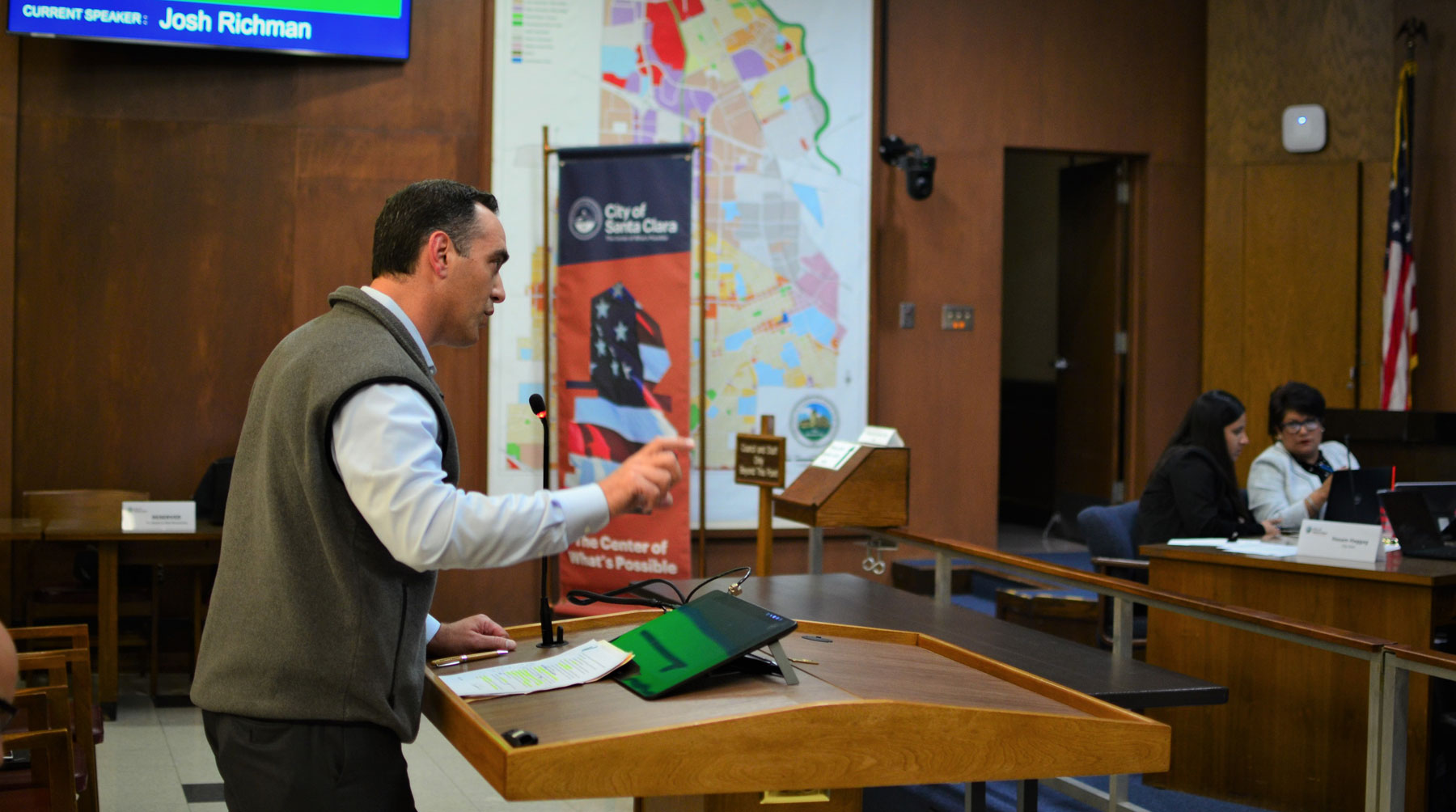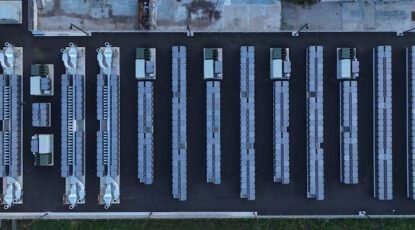It’s disconcerting to see a city in Silicon Valley – a place widely considered the epicenter of innovation – ban innovative, local businesses from using cutting-edge technology. Yet, this is exactly what is happening with a new resolution by the City of Santa Clara that requires all onsite electricity generation to only utilize certified renewable fuel, a de facto ban on fuel cell technology.
In a press release issued by the City of Santa Clara and Silicon Valley Power (SVP), titled, “Silicon Valley Power Advances Commitment to Renewables,” the City claims that power sources excluded from the resolution, i.e. fuel cells, don’t align with clean goals and that SVP motives are not aligned with protecting their customer load.
That’s just not true.
The outcomes of this resolution are bad for the climate, bad for air quality, monopolistic, and run counter to California’s energy and environmental policy goals.
You don’t have to take our word for it. Local businesses, climate and fuel cell experts, and leading policy groups have all spoken out in opposition to this action by the City.
Biogas Economics
….the requirement to use only in-state biomass is tantamount to banning all behind-the-meter fuel cells….Biomethane is prohibitively expensive if used for electricity generation. Taking into account the asymmetric federal and state subsidies, it is simply not economical to utilize biomethane for non-transportation purposes, such as to generate electricity through fuel cells.
California’s leading expert on biogas economics
Climate and Air Quality Impacts
It will take more than renewable electric power generators and batteries to achieve zero emissions and California’s carbon reduction goals. Hydrogen and electrochemical energy conversion will be essential….Unlike combustion power plants, fuel cells produce electricity without the air pollutants that form smog, cause asthma, and worsen public health. Because fuel cells run 24/7, and reduce emissions relative to the grid when the sun is not shining nor the wind blowing, they actually reduce CO2 emissions by a comparable amount to renewables.
director of the National Fuel Cell Research Center at UC Irvine
The degree to which fuel cells out-perform natural gas power production can be quantified by directly comparing emissions factor data for a Bloom Energy fuel cell with data from the [Silcon Valley Power] Donald Von Raesfeld Power Plant. ….on a per MWh basis the Bloom Energy fuel cell would on average generate 20 percent lower GHG emissions than the Donald Von Raesfeld Power Plant. Ultimately, an increase in natural gas production as a result of this proposed resolution could result in a significant increase in greenhouse gas emissions.
consulting engineering group
Non-transparent, Unscientific Process
Using average emissions factors to measure the effect of environmental decisions….overestimates the effects on these unaffected plants, and underestimates the effects on the marginal plants which actually do change in response to policy. If these plants have different emissions rates, this can lead to incorrect measurement of policies. ….If policymakers were to only allow technologies that were below the average emissions levels, they might inadvertently allow existing, inefficient generators to operate more than they intend. The result would be restricting projects are that good for the environment, instead of encouraging them.
independent, non-profit, energy institute
The proposed Resolution and SVP tariff as currently drafted do not offer a pathway to success for achievement of renewable energy goals. Neither do they analyze the proposal’s consistency with reliability, safety, just and reasonable rates, competition, consumer choice, and GHG mitigation. Nor is the scope of its intended application clear or adequately supported. I urge the City Council to conduct and timely disclose for public comment independent expert analysis of the state of the renewable natural gas procurement market for stationary sources, the Resolution’s likely GHG effects, and to consider alternatives commensurate with the biomethane market’s development.”
associate professor of law, former commissioner at the California Public Utilities Commission
Eliminating Customer Choice
To be successful and compete, we require affordable, reliable, sustainable, high quality power. Even a momentary lapse in electrical power quality or delivery can result in the loss of tens-of-thousands of dollars—both for us and our customers. ….As SVP rightfully states, ‘Most of our customers want us to serve them reliable power at the lowest cost available. Adding more renewables to the mix is more expensive, because renewables are very investment intensive. It is up to consumers to let it be known that they want better energy choices.’ We are doing so with this letter. We are proud to be community leaders in the adoption of clean energy and we should continue to have the right to choose our own clean, resilient onsite power solutions for our facilities.
local data center operator and Bloom Energy customer
To us, this looks more like a monopoly trying to prevent competition than an honest attempt at carbon reduction.
local data center operator and Bloom Energy customer
Hurting Local Businesses
When l decided to invest in Santa Clara and grow here, l did so in part because of the business friendly climate. I am therefore dismayed to hear that the city may be planning to rush through a resolution that would have so many negative consequences for Silicon Valley businesses.
local business and supplier to Bloom Energy
Stifling Innovation
Leadership Group member companies are exploring clean, low-carbon alternatives to grid power— such as non-combustion fuel cells—and we encourage Santa Clara to enable these companies to innovate when making choices of how to reliably power their facilities.
public policy association
Santa Clara’s attempt to ban new forms of self-generation is similar to the previous efforts of cities to prevent now ubiquitous ride sharing. However, this case of stifling innovation involves a city that owns its own utility and gas power plants protecting the revenues that it receives from its sale of electricity through its monopoly.
Just as cities ultimately couldn’t prevent a better ride sharing solution, we’re confident that history will prove that cities will be unable to stand in the way of businesses adopting more efficient, cleaner, and more reliable energy solutions.



